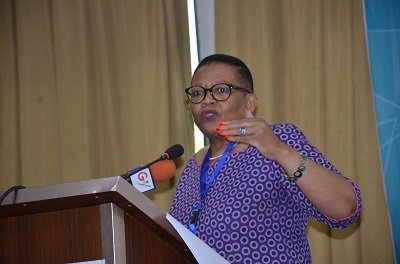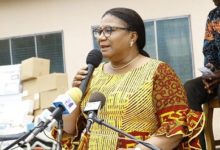
PThe Media Foundation for West Africa’s (MFWA) 2019 Media Excellence Conference and Awards on the theme: “Social Media, Fake News and Elections in Africa” opened in Accra yesterday.
The three-day conference is being attended by journalists, media experts and media development organisations from 16 countries across the West African region.
It is aimed at exploring the impact of social media and fake news on elections in Africa and make key recommendations for good governance and media development in the region.
Madam Pansy Tlakula, chairperson of South Africa’s Information Regulatory Commission, delivering the keynote address said Africa’s electoral laws needed to be amended to address the challenges social media had brought to mainstream media and its impact on misinformation.
According to her, electoral laws on the continent were archaic and needed modernisation to respond to modern trends, so as to stop the spread of fake news.
Data protection and privacy, she said, were now human right issues which needed to be guarded in the age of unlawful acquisition of information.
Privacy violations, Madam Tlakula noted, was rife and that, if electoral management bodies were not protected from persons fishing for data for their nefarious activities, everybody was at risk of the actions of such persons.
“People cannot go away with our data and use it for what they want to. Our data matters,” she declared.
Accusing politicians across the continent of obtaining voter data unlawfully, Madam Tlakula said elections in the future would be rigged through technology, hence the need to address the lacuna in the role social media plays in contemporary times on the continent.
Board Chairman of the MFWA, Edetaen Ojo, in his welcome address said, social media was becoming a challenge to the mainstream media.
He said, “It’s unfortunate that some media personnel have allowed themselves to spread false news”, urging journalists to double-check their stories before publishing.
“The obvious response to the problem is to practice journalism professionally; that is gatekeeping where there are restrictions. Social media is freer and has no restrictions and as professional journalists and stringers, we can provide the public with correct news instead of false news,’’ he said.
Social media, he continued, was giving political leaders anxiety and sleepiness nights; a reason they shut social media in their respective countries during elections.
A Deputy Communications Minister, George Anda Nenyi, on his part, dismissed rumours that government was planning to shut social media on election day in the 2020 presidential and parliamentary polls.
“We don’t have the ability or the capability to shut down any social media channel. The news out there is fake,” he told the conference.
“Facts-based journalism is essential to promote democratic governance, transparency and a well-informed active citizenry engaged in holding governments and all sectors accountable,” Roberto Quiroz II, Public Affairs Officer, United States Embassy in Ghana added.
BY JULIUS YAO PETETSI & KIMBERLY FREMPONG






